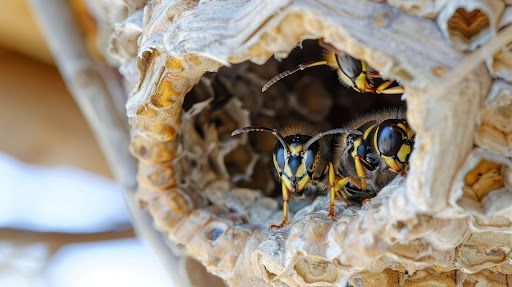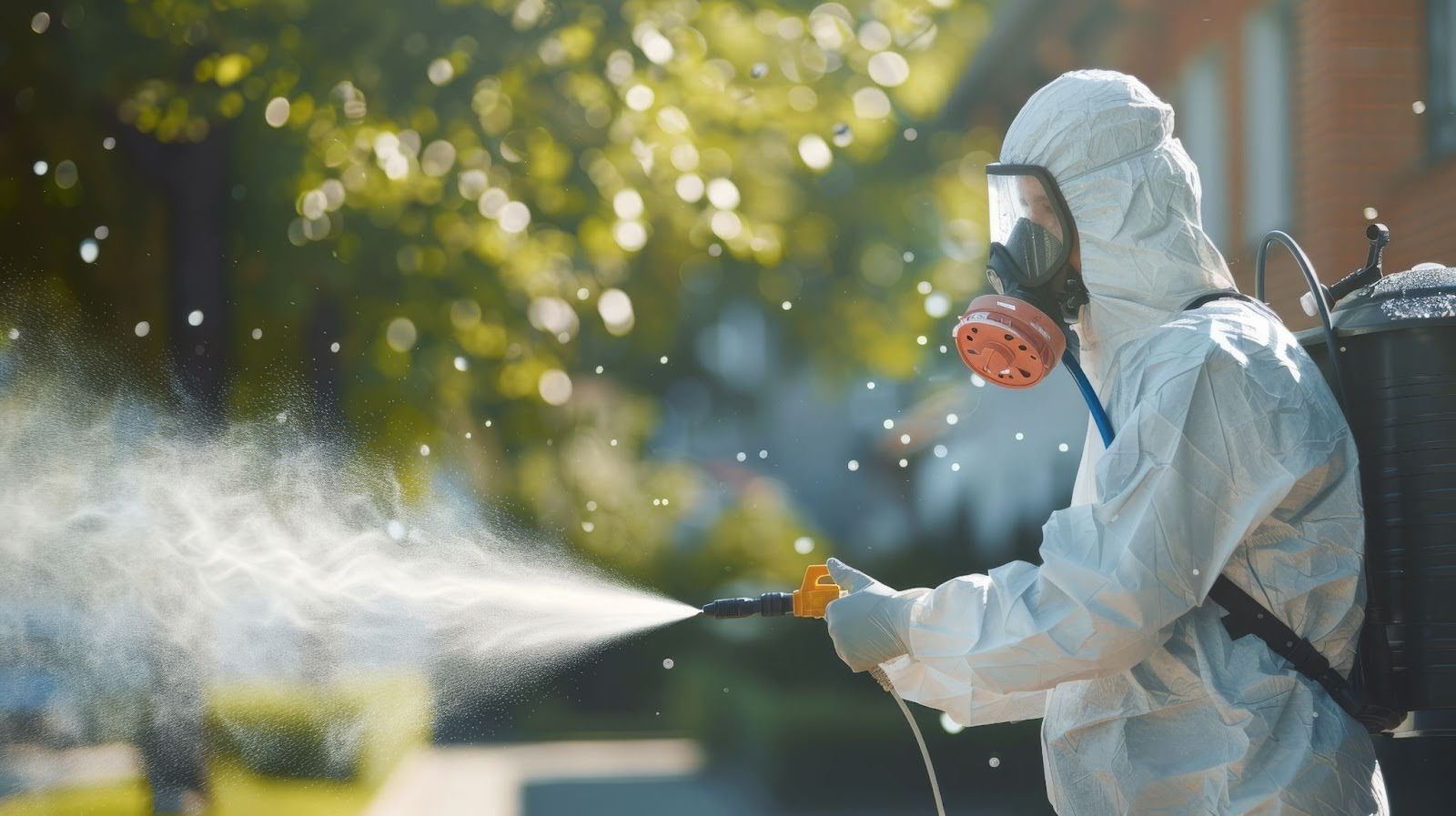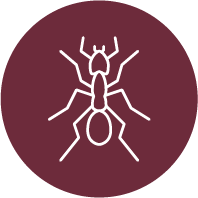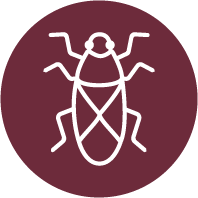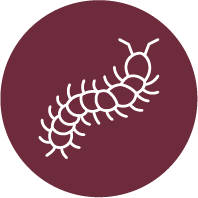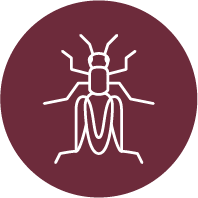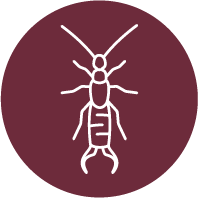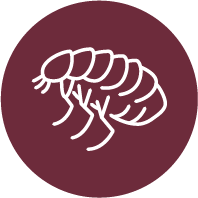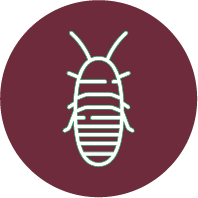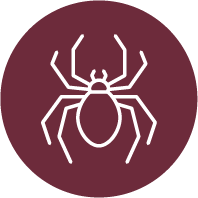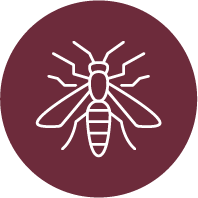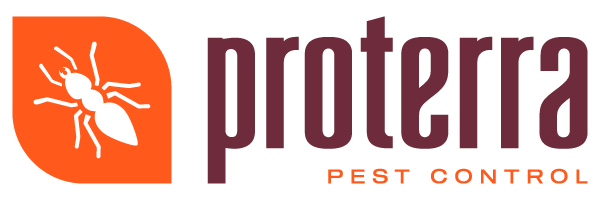Asthma and Allergies: The Unseen Menace of Household Pests
Understanding the connection between household pests and respiratory health is crucial for maintaining a healthy living environment. Pests such as cockroaches, rodents, and dust mites are known to contribute significantly to respiratory issues, particularly asthma and allergies.
How Pests Trigger Asthma and Allergies
Household pests often trigger asthma and allergies through their droppings, saliva, and skin. Cockroaches, for instance, thrive in warm, moist environments and are commonly found in kitchens and bathrooms. Their droppings and body parts can become airborne, causing allergic reactions and asthma attacks. Rodents, another common household pest, are often found in basements, attics, and other secluded areas. Their urine and droppings can also trigger allergic reactions. Dust mites, microscopic pests that live in bedding and upholstery, produce waste that can exacerbate asthma symptoms. In the Tri-Cities area, the local climate plays a role in the prevalence of these pests, with warm summers and mild winters creating ideal conditions for their populations to thrive.
Health Impacts of Pest-Related Allergens
Exposure to pest-related allergens can have significant health impacts, especially on children and the elderly, who are more vulnerable to environmental triggers. Common household pests such as cockroaches, rodents, and dust mites produce allergens that can exacerbate respiratory conditions. Studies indicate a rise in asthma and allergy cases linked to pest exposure, underscoring the importance of managing these allergens effectively to protect susceptible populations.
Prolonged exposure to these allergens can lead to chronic respiratory issues, impacting the quality of life for those affected by causing frequent asthma attacks, allergic reactions, and compromised lung function. In children, such exposure can affect lung development and increase the likelihood of developing asthma later in life. If left unmanaged, pest-related allergens can cause long-term health problems, including persistent asthma and other respiratory complications that may necessitate ongoing medical treatment. Evidence suggests that reducing pest allergens in the home environment can significantly decrease the need for medication and emergency medical visits, highlighting the critical role of effective pest management in promoting overall health and well-being.
Strategies for Reducing Pest Allergens
Practical strategies should be implemented in the home to reduce exposure to pest allergens, providing relief for individuals with asthma and allergies. Regular cleaning, such as vacuuming with HEPA filters and frequently washing bedding, can help remove allergens that accumulate in dust. Proper food storage in sealed containers prevents pests like cockroaches and rodents, while promptly fixing leaks and eliminating standing water reduces moisture that pests need to thrive. Sealing entry points, such as gaps around windows, doors, and pipes, is essential in minimizing pest presence and preventing new infestations.
Professional pest control services play a crucial role in maintaining a pest-free environment and reducing allergen levels. By using targeted treatments and environmentally friendly products, these experts can effectively manage pest populations while minimizing health risks.They provide valuable education on prevention strategies and ongoing monitoring to detect early signs of pest activity. By identifying and addressing infestations promptly, these services help ensure a safer indoor environment for residents, ultimately contributing to improved air quality and a healthier living space. Regular communication with pest control professionals can help tailor a plan specific to your home’s needs, further enhancing the effectiveness of allergen reduction strategies.
Eco-Friendly Pest Control Solutions
Proterra Pest Control is committed to providing eco-friendly pest control solutions that contribute to a healthier indoor environment, ensuring that both people and pets are safe from harmful chemicals. By using less toxic and environmentally safe methods, such as integrated pest management (IPM) techniques and organic products, Proterra ensures effective pest management without compromising safety. Their team is trained to identify and implement the most sustainable practices, reducing the ecological footprint of pest control activities.
Proterra places a strong emphasis on prevention and education, empowering homeowners with the knowledge to prevent future infestations naturally. Their commitment to safety and effectiveness is further emphasized by their promise of free re-treatment if issues arise between visits, providing peace of mind and reliable service. This approach not only protects the home environment but also supports overall health and well-being by reducing exposure to potentially harmful substances. By choosing Proterra, customers are actively participating in a greener and more sustainable future, aligning pest control practices with broader environmental values.
The Role of Professional Pest Control
Professional pest control is essential for effectively managing and preventing pest-related allergens. Experts in the field can identify infestations that homeowners might miss and tailor solutions to specific needs. According to the National Pest Management Association, professional pest management is a key factor in maintaining a safe and healthy living environment. By leveraging their expertise, pest control professionals can address issues comprehensively, reducing the risk of respiratory health problems associated with pests.
Local Challenges and Community Initiatives
In the Tri-Cities area, residents face specific pest challenges due to the local geography and climate. The warm, dry summers and mild winters create favorable conditions for pests like cockroaches, rodents, and dust mites. Community initiatives and programs in Kennewick, Pasco, and Richland support pest management and respiratory health, highlighting the importance of collaboration in addressing these challenges. By staying informed and proactive, residents can better manage pest-related health risks.
Future Directions in Pest Control
Looking to the future, advancements in pest control are focusing on health and safety, with a growing emphasis on eco-friendly products and technology. As climate change and urbanization continue to influence pest behavior and populations, the potential for increased pest-related health issues remains a concern. Public awareness and education play a vital role in mitigating these risks, ensuring that communities are equipped to handle the challenges posed by household pests.
Understanding the link between pests and respiratory health is essential for maintaining a healthy home environment. By implementing effective strategies and relying on professional pest control services, residents can minimize exposure to allergens and protect their respiratory health. With a focus on eco-friendly practices and community collaboration, the Tri-Cities area is well-positioned to address the challenges posed by household pests.
If you're concerned about how household pests may be impacting your asthma or allergies,
contact Proterra Pest Control for expert assistance. Our team is committed to providing safe and effective pest control solutions tailored to your needs.
